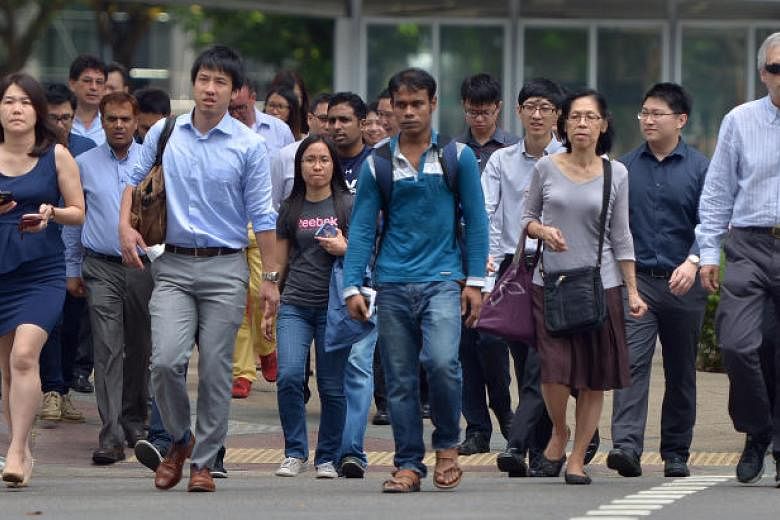Singaporeans are more likely to accept new citizens as being "truly Singaporean" if they are of the country's four core ethnic groups, according to a local study.
They are, however, less accepting of people of other ethnicities, such as Korean or Filipino.
More so if these new citizens are people from less-developed regions such as Africa, said researchers of the study on ethnic identity and inter-ethnic interactions done by the Institute of Policy Studies (IPS) and Channel NewsAsia.
The findings, based on a survey of about 2,020 Singaporeans and permanent residents conducted between May and July, was released yesterday.
The questions they were asked included how acceptable it was for a new citizen of a particular ethnic background to be viewed as "truly Singaporean".
They had to choose from four options: "unacceptable", "somewhat unacceptable", "somewhat acceptable" or "acceptable".
More than 90 per cent said it was at least somewhat acceptable for new citizens who are Malay, Chinese or Indian, while 84 per cent said the same for new citizens who are Eurasian.
About 75 per cent would at least somewhat accept those of Japanese or Korean ethnicity as being truly local, while 60 per cent said they would do the same for those of Arab or African descent.
Singapore gave citizenship to 22,102 people last year, most of whom came from Asia.
Dr Mathew Mathews, an IPS senior research fellow who led the study, said the findings show that the Chinese, Malay, Indian and Others, or CMIO, framework resonates with Singaporeans.
It demonstrates that the CMIO framework has a part to play in associating national identity with the core ethnic groups in Singapore, the researchers added.
But only about half of Singaporeans say it is important to feel a connection to their ancestral heritage.
Asked to rank the importance of feeling such a connection, with four options ranging from "unimportant" to "important", just slightly more than half of Malay and Indian respondents said it was at least somewhat important.
For the Chinese, just 38.7 per cent said that having such a connection is at least somewhat important.
On top of that, 84 per cent and 96 per cent of Chinese and Malay respondents said they felt the closest cultural affinity with Malaysia-born Chinese and Malay people, respectively.
Indian respondents, meanwhile, saw themselves as closest in culture to those from India (93 per cent), while 90 per cent cited Malaysia-born Indians.
Polytechnic student Alex Andres, 19, who became a citizen in 2008 after moving here from the Philippines, said locals had difficulty relating to her initially.
But her ethnicity became less of a barrier when she made the move to learn more about local culture and quirks, like speaking Singlish.
"As new citizens, we can try to integrate, and Singaporeans will respond by learning a little about our own culture - our cuisine, language. We somehow meet in the middle and come to an understanding."



